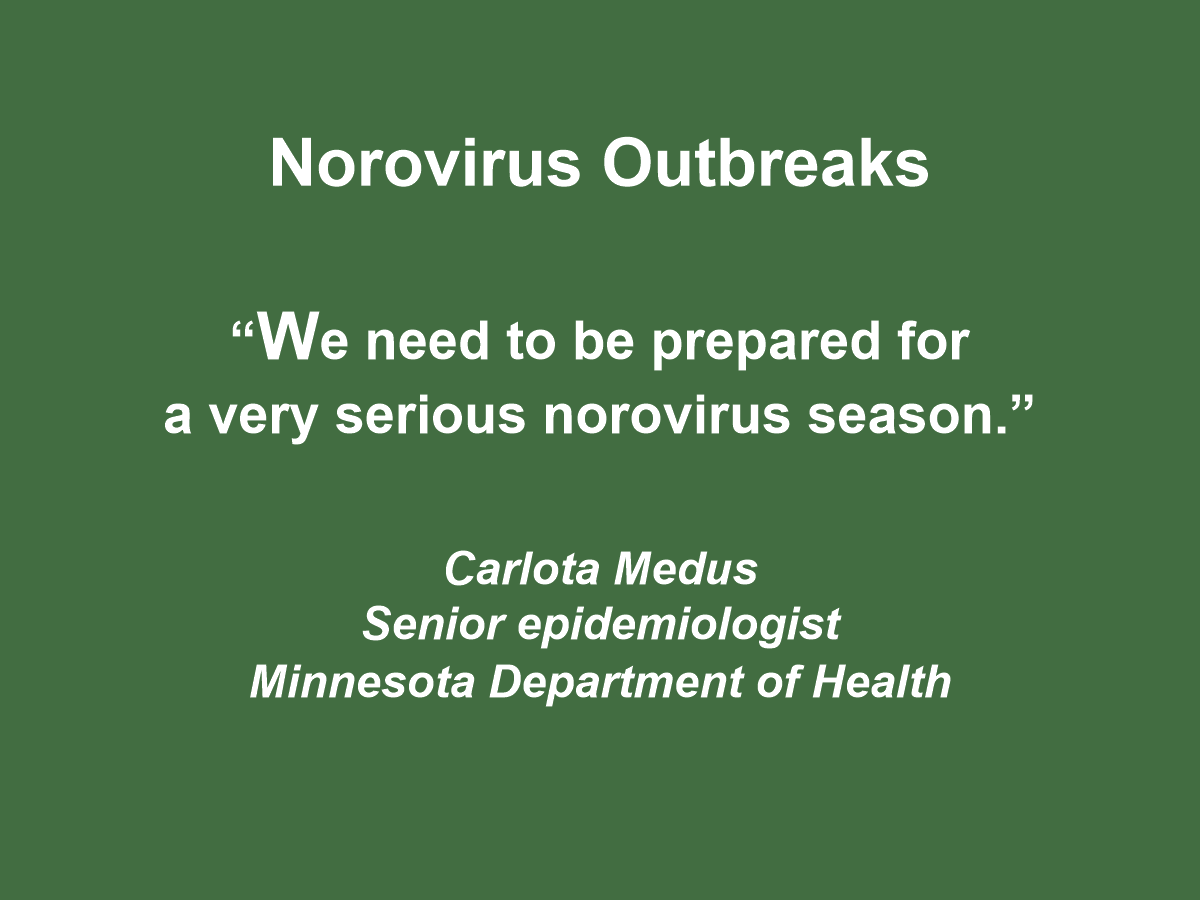Woodbury residents gathering with family and friends for holiday parties or football watching over the next few days may want to review their game plan for stopping the spread of norovirus.
More than 40 outbreaks of the illness – which typically causes vomiting, diarrhea and stomach cramping – were reported in Minnesota in December. That’s almost twice the usual number, according to the Minnesota Department of Health. There were two outbreaks in Washington County last month, with at least 13 cases among them.
And while it might not sound like much, it’s likely only the tip of the iceberg of what’s going around, said Carlota Medus, a senior epidemiologist with MDH. While frequently referred to as “stomach flu,” norovirus has nothing to do with influenza.
“We need to be prepared for a very serious norovirus season,” Medus said, adding, “It’s everywhere – schools, long-term care, restaurants – and no part of the state is spared.”
Because clinics and hospitals are not required to report individual cases of norovirus, the state only tracks the number of outbreaks when enough cases occur in one place at one time, or they become serious enough that they get reported. “We only see a fraction of what’s going around,” she said.
For all of 2024, there were 13 confirmed or suspected outbreaks in Washington County, with at least 218 cases, according to MDH data.
While relatively few outbreaks were reported nationally and in Minnesota in November, the numbers jumped significantly in December. Since winter is when the vast majority of norovirus cases occur, things are only going to get worse before they get better.
Most norovirus illnesses and outbreaks can be prevented through good handwashing and appropriate food handling, health officials say, so here’s what you can do:
-
Always wash your hands with soap and water for 20 seconds before preparing or eating foods, and after using the bathroom or changing diapers. Most hand sanitizers do not kill norovirus.
-
Do not prepare food for others at all if you have been sick with vomiting or diarrhea in the last three days. Likewise, do not eat food prepared by someone who is ill with vomiting or diarrhea.
-
Clean and disinfect surfaces with a household bleach solution immediately after surfaces come in contact with vomit or diarrhea.
-
Cook oysters and other shellfish before eating them.
Other symptoms of noroviruses can include low‐grade fever or chills, headaches and muscle aches. More information on norovirus can be found on the MDH website.
Editor’s Note: Doug Schultz is a former communications specialist for the Minnesota Department of Health.

















